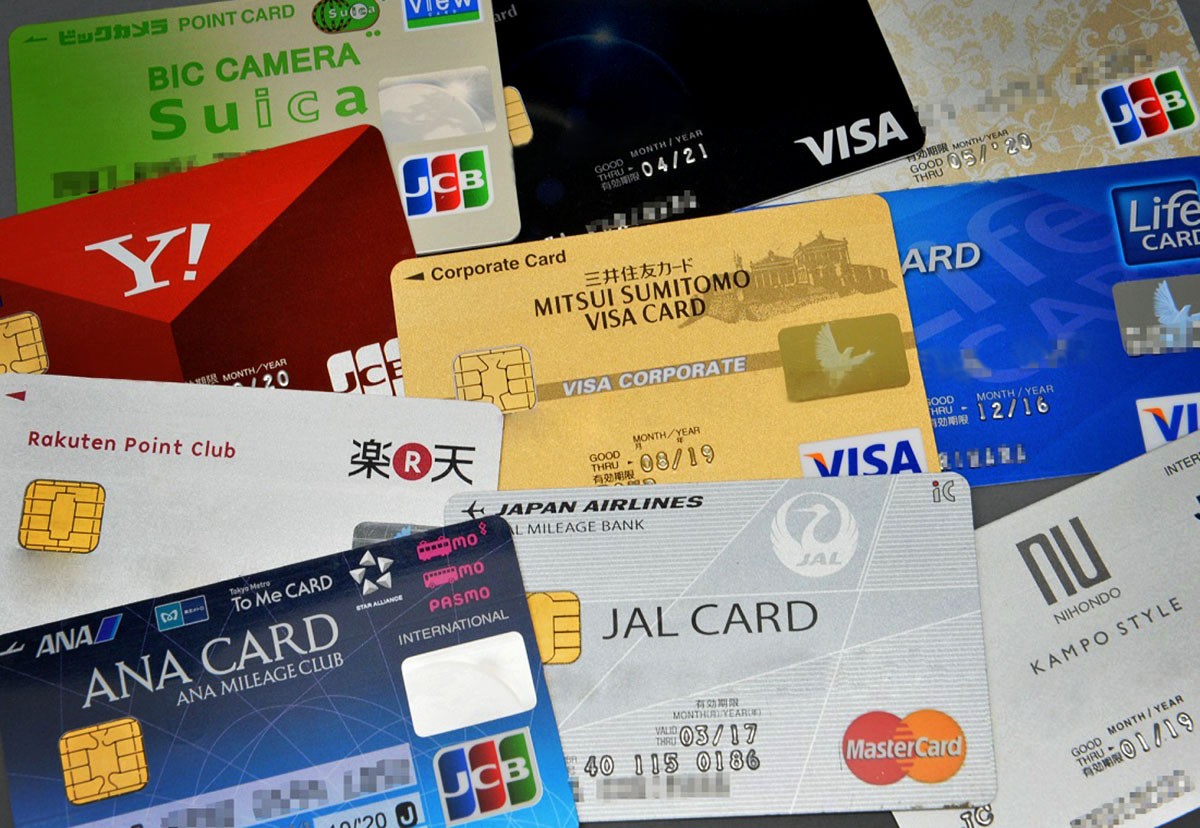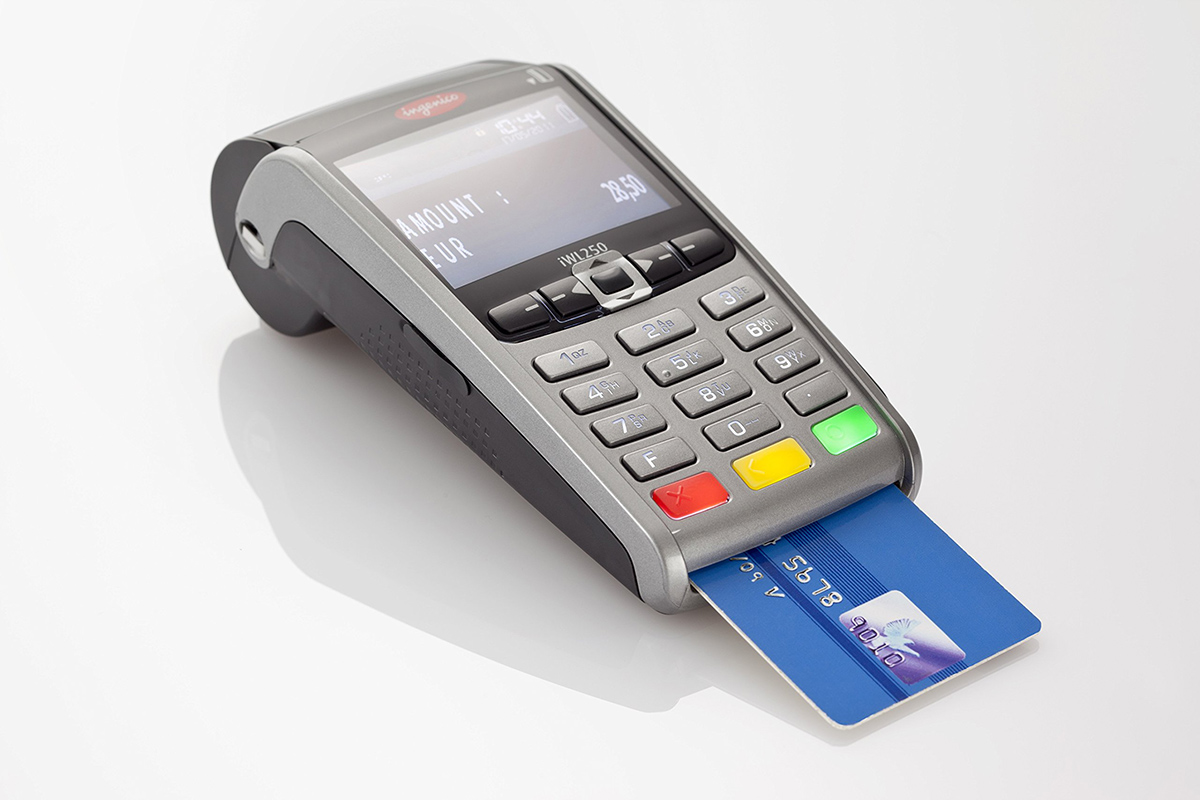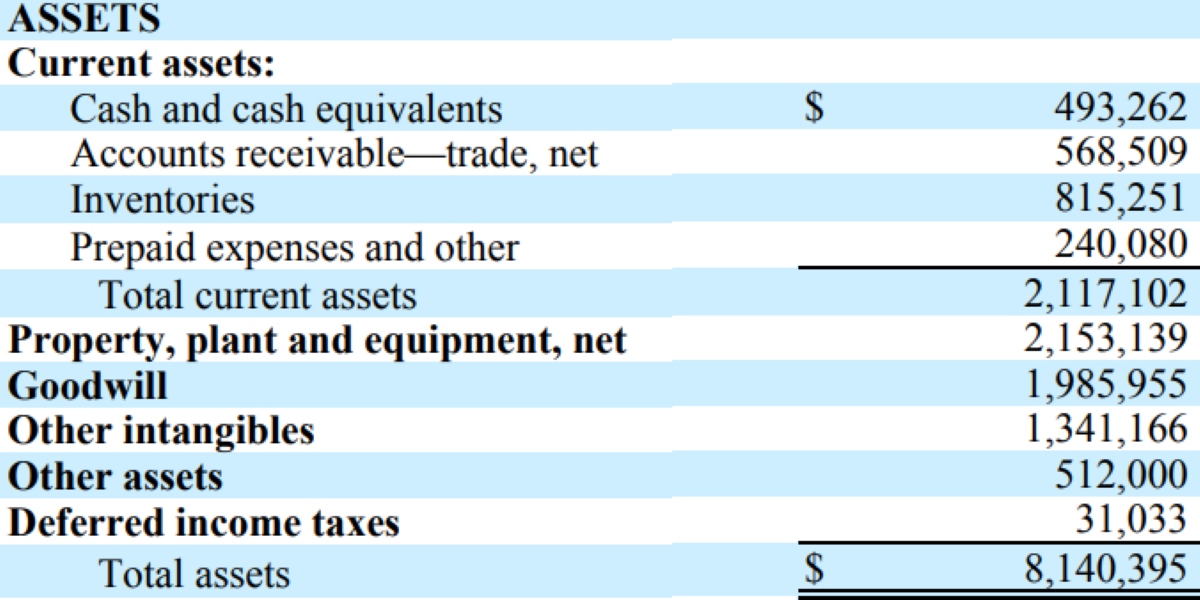

Finance
How To Get A Credit Card At 18
Published: November 7, 2023
Learn how to get a credit card at 18 and manage your finances effectively. Explore tips and tricks for building credit and financial independence
(Many of the links in this article redirect to a specific reviewed product. Your purchase of these products through affiliate links helps to generate commission for LiveWell, at no extra cost. Learn more)
Table of Contents
Introduction
Getting a credit card at the age of 18 is an exciting milestone that marks the beginning of financial independence. Having a credit card allows young adults to start building their credit history and learning important financial skills. However, not all credit card companies are willing to extend credit to individuals who are under 21 years old. Understanding the minimum age requirement and the steps involved in getting a credit card at 18 can help young adults navigate the process successfully.
In this article, we will delve into the requirements and strategies to obtain a credit card at the age of 18. We will explore the importance of building a solid credit history, the different credit card options available, tips for increasing approval chances, and managing credit responsibly.
Before diving into the details, it’s important to note that while getting a credit card at 18 can be beneficial, it also requires responsibility and careful financial planning. It’s crucial for young adults to understand how credit cards work, the importance of making timely payments, and the impact that their spending habits can have on their credit score and future financial opportunities.
Whether you are a student, looking to start your professional career, or simply want to establish good financial habits early on, this guide will provide you with the necessary insights and tips to navigate the world of credit cards at the age of 18. So let’s dive in and explore the steps to embark on your credit journey!
Understanding the Minimum Age Requirement for a Credit Card
Before applying for a credit card at 18, it’s important to understand the minimum age requirement set by credit card issuers. In the United States, the minimum age to have an individual credit card account is typically 18 years old. However, there are some exceptions and limitations in place to protect younger individuals from entering into financial agreements they may not fully comprehend.
The Credit Card Accountability Responsibility and Disclosure (CARD) Act of 2009 plays a significant role in regulating credit card applications for individuals under 21 years old. According to this act, applicants under 21 years of age are required to have a co-signer or show proof of independent income to be eligible for a credit card. This provision aims to ensure that young individuals have the means to repay any debt incurred.
If you’re under 21 and don’t have a co-signer or sufficient income to qualify for a credit card on your own, you can consider becoming an authorized user on someone else’s credit card account. Being an authorized user allows you to use the credit card but doesn’t make you legally responsible for the debt. This can be a good option to start building credit before you turn 21 and can apply for your own credit card.
It’s essential to note that credit card issuers may have their own policies and requirements when it comes to the minimum age for opening an account. Some issuers might have higher minimum age requirements, so it’s important to research and consider different credit card options that align with your needs and eligibility.
Before applying for a credit card, it’s also crucial to understand the responsibilities and potential risks associated with credit card ownership. Credit cards can provide convenience and financial flexibility, but they also require discipline and responsible financial management. Understanding the terms and conditions, interest rates, fees, and payment obligations associated with credit cards is vital to avoid potential pitfalls and make informed decisions.
Now that we have a clear understanding of the minimum age requirements and considerations for credit card applications at 18, let’s explore how to build a good credit history, which is essential for obtaining a credit card and achieving long-term financial success.
Building a Good Credit History
Building a good credit history is crucial when it comes to getting approved for a credit card at 18. Lenders and credit card issuers rely on your credit history to assess your creditworthiness and determine whether to extend credit to you. Here are some steps you can take to start building a strong credit history:
- Open a bank account: Start by opening a bank account in your name. This establishes a financial relationship and demonstrates your ability to manage money.
- Get a secured credit card: If you’re having trouble qualifying for a regular credit card, consider applying for a secured credit card. These cards require a cash deposit as collateral, making them less risky for issuers. By using a secured credit card responsibly and making timely payments, you can gradually build a positive credit history.
- Make timely payments: One of the most important aspects of building good credit is making all your payments on time. Late or missed payments can have a negative impact on your credit score and make it harder to get approved for credit in the future.
- Keep credit utilization low: Credit utilization refers to the percentage of your available credit that you’re using. Aim to keep your credit utilization below 30% to demonstrate responsible credit management.
- Build a mix of credit: Having a diverse credit profile can boost your credit score. Consider having a mix of credit types, such as credit cards, student loans, or auto loans.
- Monitor your credit: Regularly check your credit reports for accuracy and any signs of fraudulent activity. You can request free credit reports from each of the three major credit bureaus once a year.
It’s important to be patient when building your credit history. Remember that it takes time to establish a solid credit profile. Consistency, responsible credit behavior, and a cautious approach to borrowing will help you build a positive credit history and increase your chances of getting approved for a credit card at 18.
Building a good credit history not only facilitates your ability to obtain a credit card but also opens up many other opportunities in the future, such as getting approved for loans, renting an apartment, or even securing better interest rates on insurance. Now that you understand the importance of credit history, let’s move on to researching different credit card options available for individuals at the age of 18.
Researching Different Credit Card Options
When it comes to credit card options for individuals at the age of 18, it’s important to research and compare different offers to find the one that suits your needs and financial situation. Here are some key factors to consider when researching credit card options:
- Annual fees: Some credit cards may have an annual fee associated with them. Consider whether the benefits offered by the card outweigh the cost of the annual fee.
- Interest rates: The interest rate, also known as the Annual Percentage Rate (APR), is an important factor to consider if you plan to carry a balance on your credit card. Look for cards with competitive interest rates to minimize the cost of borrowing.
- Rewards and benefits: Many credit cards offer rewards programs that allow you to earn points, cash back, or miles on your purchases. Consider the type of rewards offered and how they align with your spending habits and preferences.
- Introductory offers: Some credit cards may have introductory offers, such as 0% APR for a certain period or bonus rewards for initial spending. Take note of these promotional offers and evaluate their value.
- Credit limit: The credit limit determines the maximum amount you can spend on your credit card. Consider your needs and spending habits to determine the appropriate credit limit for you.
- Customer service and perks: Look for credit card issuers that provide excellent customer service and additional perks, such as extended warranties, travel insurance, or purchase protection.
It’s important to read the terms and conditions of each credit card offer carefully. Pay attention to any hidden fees, penalties, or restrictions that may apply. Additionally, consider checking reviews and ratings for different credit card issuers to gain insights into their reputation and customer satisfaction.
As a young adult, you may have limited credit history, making it challenging to qualify for premium credit cards. However, there are credit cards specifically designed for individuals starting their credit journey. These cards often have more lenient credit requirements and can be a great way to begin building your credit history.
While researching different credit card options, it’s also important to consider your financial goals and needs. Are you looking to establish credit, build rewards, or manage your expenses more efficiently? Understanding your objectives will help guide your decision-making process when choosing the right credit card.
Once you have narrowed down your options and found a credit card that aligns with your needs, it’s time to move on to the next step: the credit card application process.
Applying for a Credit Card
Applying for a credit card can be an exciting step towards financial independence and building your credit history. Here are the steps to follow when applying for a credit card at the age of 18:
- Gather necessary documentation: Before starting the application process, make sure you have all the necessary documentation, such as your social security number, proof of income, and identification documents. Having these ready will streamline the application process.
- Compare credit card offers: Refer to your research on different credit card options and select the one that best suits your needs and financial goals. Ensure that you meet the eligibility requirements set by the credit card issuer.
- Review the application: Carefully review the credit card application form, ensuring that you understand the terms and conditions, fees, and any other relevant information. Take note of the required fields and provide accurate and truthful information.
- Fill out the application: Complete the credit card application form, providing all the necessary details requested. Be prepared to provide information about your personal details, employment history, income, and financial information.
- Submit the application: Once you have filled out the application form, review it once more to ensure accuracy. Then, submit the application either online or by mail, depending on the method preferred by the credit card issuer.
- Wait for a decision: After submitting your application, the credit card issuer will review your application and evaluate your creditworthiness. The decision process can take a few days to several weeks, depending on the issuer. Be patient and wait for the response.
- Review the approval terms: If your application is approved, carefully review the approval terms, including the credit limit, APR, and any associated fees. Make sure you understand the terms before accepting the offer.
- Activate the card: Once you receive your credit card in the mail, follow the provided instructions to activate it. Usually, this involves calling a toll-free number or activating it online.
It’s important to note that applying for multiple credit cards within a short period can negatively impact your credit score. Therefore, it’s advisable to apply for one credit card at a time and wait for a response before considering other options.
In some cases, you may receive a rejection for your credit card application. If this happens, don’t be discouraged. Instead, take the opportunity to understand why the application was denied. Review your credit report for any potential issues or errors and take steps to improve your creditworthiness before applying again.
Now that you have successfully applied for a credit card, let’s explore some tips to increase your chances of approval before submitting your application.
Tips for Approval
When applying for a credit card at 18, there are several tips you can follow to increase your chances of approval. While approval is never guaranteed, implementing these strategies can improve your likelihood of success:
- Establish a steady source of income: Lenders look for evidence of your ability to repay credit card debt. Having a steady source of income showcases your financial stability and increases your chances of approval.
- Build a positive credit history: As mentioned earlier, building a good credit history is essential. Make sure to make timely payments on all your bills, including any loans or student debts you may have. Paying off existing debts can also improve your credit score.
- Consider a cosigner: If you don’t meet the income requirements or have limited credit history, having a parent or guardian with a good credit score cosign your credit card application can boost your chances of approval. Just be aware that the cosigner is equally responsible for repaying the debt.
- Start with a secured credit card: If you’re struggling to get approved for a traditional credit card, consider applying for a secured credit card. This type of card requires a cash deposit, which serves as collateral. Using a secured credit card responsibly can help you establish a positive credit history and eventually qualify for an unsecured card.
- Apply for student credit cards: Many credit card issuers offer specialized credit cards designed specifically for students. These cards often have lower credit requirements and provide benefits tailored to student needs. Research and compare different student credit card options before applying.
- Keep your credit utilization low: Aim to keep your credit card balances low in proportion to your available credit. High credit utilization can signal financial instability and decrease your chances of approval.
- Limit your applications: As mentioned earlier, avoid applying for multiple credit cards within a short period. Multiple applications can raise red flags for lenders and negatively impact your credit score.
- Review your credit report: Regularly review your credit report to ensure its accuracy. Dispute any errors or discrepancies that may be affecting your credit score negatively. You can request a free credit report from each of the three major credit bureaus annually.
Remember, building credit takes time and patience. It’s important to establish good financial habits early on and demonstrate responsible credit behavior. By implementing these tips and strategies, you can increase your chances of getting approved for a credit card and begin your journey toward financial independence.
Now that you have successfully obtained a credit card, it’s crucial to manage it responsibly to reap the benefits it offers. In the next section, we will explore tips for managing your credit card effectively.
Managing Your Credit Card Responsibly
Obtaining a credit card at 18 is just the beginning. To make the most of your credit card and build a strong financial foundation, it’s essential to manage it responsibly. Here are some tips to help you manage your credit card effectively:
- Create a budget: Set a budget for your monthly expenses and stick to it. This will help you avoid overspending and ensure that you can pay off your credit card balance in full each month.
- Pay your bill on time: Make your credit card payments on time to avoid late payment fees and negative impacts on your credit score. Consider setting up automatic payments or reminders to ensure you never miss a due date.
- Avoid carrying a high balance: Try to pay off your credit card balance in full each month to avoid accumulating high-interest charges. If you do carry a balance, aim to keep it as low as possible to minimize interest costs.
- Monitor your credit card activity: Regularly review your credit card statements to spot any unauthorized charges or errors. Report any suspicious activity to your credit card issuer immediately.
- Avoid unnecessary fees: Be mindful of fees associated with your credit card, such as annual fees, late payment fees, or cash advance fees. Understanding and avoiding these fees can help you save money.
- Use credit responsibly: Only use your credit card for purchases that you can afford to pay off. Avoid using your credit card as a means to fund a lifestyle beyond your means.
- Keep your credit utilization low: Aim to keep your credit utilization below 30% to maintain a healthy credit score. Higher credit utilization can impact your creditworthiness and make it more challenging to qualify for future loans or credit.
- Regularly review your credit report: Check your credit report periodically to ensure its accuracy. Address any mistakes or discrepancies promptly by contacting the credit bureaus.
- Be mindful of your credit limit: While it may be tempting to max out your credit card, it’s important to understand that higher balances relative to your credit limit can negatively impact your credit score. Use your credit card responsibly and keep your balance manageable.
- Build an emergency fund: Prepare for unexpected expenses by building an emergency fund. Having cash reserves can help you avoid relying too heavily on your credit card in times of financial strain.
By following these tips, you can establish healthy credit card habits and maintain financial stability. Responsible credit card management will not only help you avoid debt but also improve your credit score, allowing you to qualify for higher credit limits, better loan terms, and other financial opportunities in the future.
As your financial situation evolves and you gain more experience with credit cards, consider exploring additional credit card options that offer enhanced rewards, benefits, or lower interest rates. However, always evaluate whether these options align with your financial goals and spending habits.
Credit cards can be powerful financial tools if used responsibly. By managing your credit card effectively, you can enjoy the benefits of credit while setting yourself up for long-term financial success.
Now that we’ve covered the essentials of managing your credit card responsibly, let’s wrap up this article.
Conclusion
Obtaining a credit card at the age of 18 is a significant step towards financial independence. It allows you to start building a strong credit history and gain valuable experience in managing your finances. By understanding the minimum age requirements, researching different credit card options, and following the tips for approval, you can increase your chances of getting approved for a credit card.
Building a good credit history is essential, and responsible credit card management is key. By creating a budget, making timely payments, and keeping your credit utilization low, you can establish healthy credit habits and maintain a positive credit score. Regularly reviewing your credit report and monitoring your credit card activity will help you detect any errors or fraudulent activity.
Remember, obtaining a credit card is just the beginning. It is crucial to use it responsibly and avoid unnecessary fees and high balances. By managing your credit card effectively, you can set yourself up for long-term financial success, improve your creditworthiness, and qualify for better financial opportunities.
As you navigate your credit card journey, continue to educate yourself on personal finance and make informed decisions. Seek financial guidance when needed and adapt your credit card usage to align with your evolving financial goals and circumstances.
By following these guidelines and developing good financial habits early on, you can set a solid foundation for your financial future. Enjoy the benefits of a credit card while maintaining control of your finances and working towards achieving your financial goals.
Remember, financial responsibility and smart credit card management are lifelong skills that will serve you well beyond your 18th birthday. So start building your credit, make responsible financial decisions, and embrace the opportunities that come with having a credit card!














